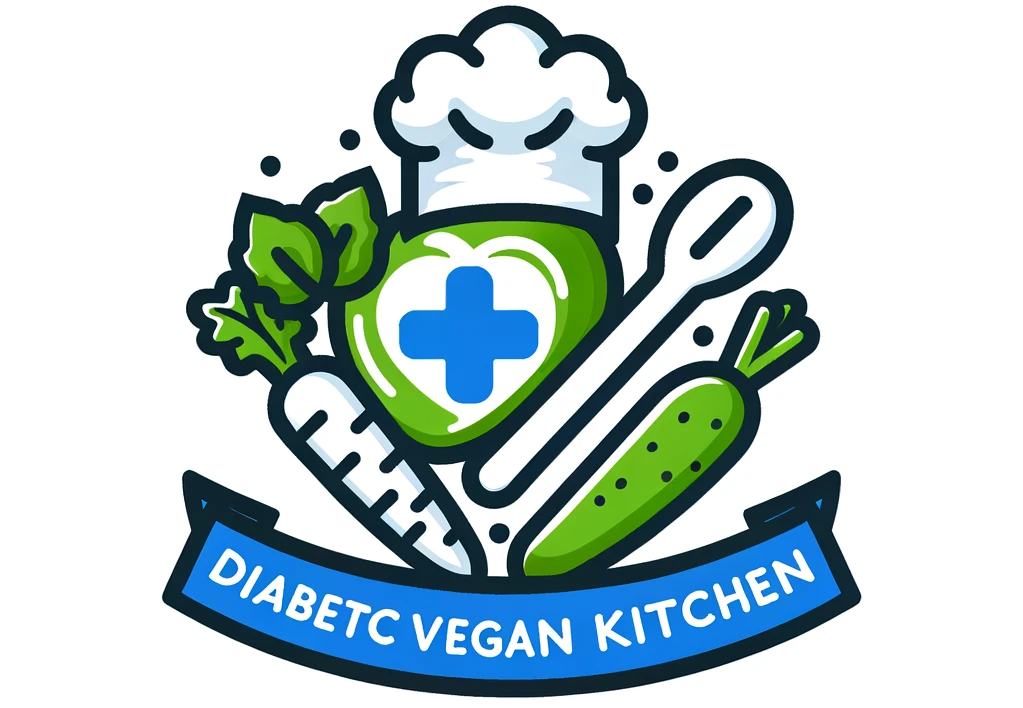If you’re leading a vegan lifestyle and have recently been diagnosed with diabetes, you might be wondering how to navigate the world of meal planning to ensure a balanced and nutritious diet. Fortunately, preparing a weekly meal plan specifically tailored to a diabetic vegan diet is not as daunting as it may seem. By incorporating a variety of plant-based foods and being mindful of your carbohydrate intake, you can easily create a delicious and wholesome menu that supports your health and satisfies your taste buds. In this article, we’ll explore some helpful tips and ideas to assist you in preparing a weekly meal plan that caters to both your diabetic and vegan needs.

Importance of a Diabetic Vegan Diet for Diabetes Management
Managing diabetes can be a challenging journey, but adopting a diabetic vegan diet can be a game-changer in promoting better health and effectively managing blood sugar levels. A diabetic vegan diet focuses on plant-based foods while excluding animal products and is proven to have numerous benefits for individuals with diabetes. From understanding the basics of a diabetic vegan diet to creating a weekly meal plan, this comprehensive guide will provide you with all the necessary information to embark on this exciting and nourishing culinary journey.
Understanding the Basics of a Diabetic Vegan Diet
Consulting a Registered Dietitian
Before diving into a new dietary lifestyle, it is essential to consult a registered dietitian who specializes in diabetes management and vegan nutrition. A dietitian will assess your nutritional needs, provide personalized guidance, and help you develop a plan that suits your preferences and health goals. Their expertise and support will ensure you make informed choices and maintain a balanced and sustainable diabetic vegan diet.
Identifying Suitable Carbohydrate Sources
Carbohydrates play a crucial role in managing blood sugar levels for individuals with diabetes. However, it is essential to choose the right carbohydrates. Opt for complex carbohydrates such as whole grains, legumes, and vegetables, as they digest slowly and have a lower impact on blood sugar levels. Refined grains and sugary snacks should be limited or avoided altogether. Balancing your carbohydrate intake with other nutrients is key.
Choosing Plant-Based Protein Options
Protein is an important macronutrient that helps maintain muscle mass, supports satiety, and stabilizes blood sugar levels. Incorporating a variety of plant-based protein sources into your meals is vital. Options such as beans, lentils, tofu, tempeh, nuts, and seeds provide essential amino acids and can easily replace animal protein in a diabetic vegan diet. Aim for a balanced intake of protein throughout the day.
Incorporating Healthy Fats
Healthy fats are an important component of a diabetic vegan diet as they help regulate blood sugar levels, reduce inflammation, and improve heart health. Sources such as avocados, nuts, seeds, olives, and coconut oil should be included in moderate amounts. Be mindful of portion sizes as fats are calorie-dense. Balancing your fat intake with other nutrients is crucial for overall health and diabetes management.
Including Fiber-Rich Foods
Fiber is an essential part of a diabetic vegan diet as it aids in regulating blood sugar levels, improves digestion, and promotes overall gut health. Foods like fruits, vegetables, whole grains, legumes, and seeds are rich in fiber and should be incorporated into your daily meals. Aim for a variety of colors and textures to ensure you receive a wide range of nutrients and maximize the benefits of dietary fiber.

Step-by-Step Guide to Creating a Weekly Meal Plan for a Diabetic Vegan Diet
Determining Caloric and Nutritional Needs
The first step in creating a successful weekly meal plan is to determine your caloric and nutritional needs. Factors such as age, gender, height, weight, activity level, and specific health goals should be taken into consideration. Consulting a registered dietitian can help you accurately calculate your requirements and ensure your meal plan meets your individual needs.
Planning Meals for Each Day
Once you have determined your caloric and nutritional needs, it’s time to plan your meals for each day of the week. Start by deciding on a variety of breakfast, lunch, and dinner options that incorporate the principles of a diabetic vegan diet. Consider the different food groups, such as whole grains, legumes, vegetables, fruits, and healthy fats, and aim for a balanced distribution of nutrients throughout the day. Include a variety of flavors, colors, and textures to keep your meals exciting and enjoyable.
Creating a Detailed Shopping List
After planning your meals, create a detailed shopping list to ensure you have all the necessary ingredients on hand. Organize the list by sections, such as produce, grains, legumes, and spices, to streamline your shopping experience. Be sure to include all the items needed for your recipes, as well as staple pantry items that will support your diabetic vegan diet. This will help you stay organized and prevent any last-minute trips to the grocery store.
Meal Prep Tips and Tricks
Meal prep can be a lifesaver when it comes to sticking to a diabetic vegan diet. Spend some time each week prepping ingredients, batch-cooking staple meals, and portioning out snacks to make your daily routine more convenient. Invest in glass or BPA-free containers to store your prepped meals and snacks safely. This will not only save you time but also ensure you always have a healthy meal or snack option readily available.

Sample Meal Plan for a Diabetic Vegan Diet
Breakfast Ideas
- Overnight oats with mixed berries and a sprinkle of nuts and seeds
- Whole grain toast topped with avocado, tomato, and a side of mixed greens
- Vegan tofu scramble with sautéed vegetables and whole grain toast
Lunch and Dinner Options
- Quinoa and black bean salad with roasted vegetables and a lemon-tahini dressing
- Lentil curry with brown rice and steamed broccoli
- Vegetable stir-fry with tofu and whole grain noodles
Snack Suggestions
- Veggie sticks with hummus dip
- Mixed nuts and seeds
- Fresh fruit salad with a drizzle of almond butter
Beverage Choices
- Water infused with lemon, cucumber, or fresh mint leaves
- Herbal teas with no added sugars or artificial sweeteners
- Homemade smoothies using non-dairy milk, spinach, berries, and a scoop of vegan protein powder if desired

Tips for Successful Meal Planning and Implementation
Being Mindful of Portion Sizes
While a diabetic vegan diet offers numerous nutritional benefits, portion control is still essential. Be mindful of the quantity of food on your plate and listen to your body’s hunger and satiety cues. Practice portion control strategies such as using smaller plates, measuring ingredients, and eating slowly to prevent overeating.
Balancing Macronutrients
Achieving a balanced intake of macronutrients is key for managing blood sugar levels and overall health. Ensure your meals consist of a combination of complex carbohydrates, plant-based proteins, and healthy fats. Distribution of macronutrients throughout the day can help maintain stable energy levels and promote optimal health.
Managing Blood Sugar Levels
Regularly monitoring your blood sugar levels and adjusting your meals accordingly is crucial when managing diabetes. Aim for a steady intake of carbohydrates throughout the day, rather than large amounts at once. Incorporate high-fiber foods, as they tend to have a slower impact on blood sugar levels. Additionally, timing your meals and snacks evenly throughout the day can help maintain stable blood sugar levels.
Staying Hydrated
Proper hydration is essential for everyone, but particularly for individuals with diabetes. Drinking an adequate amount of water throughout the day helps regulate blood sugar levels, supports overall health, and prevents dehydration. Keep a water bottle with you at all times as a reminder to stay hydrated, and consider incorporating herbal teas and infused water for added flavor and hydration.
Experimenting with New Recipes
Maintaining a diabetic vegan diet does not mean sacrificing flavor or variety. Embrace the opportunity to explore new recipes and experiment with different flavors and ingredients. Look for inspiration in cookbooks, online resources, and social media platforms dedicated to plant-based eating. Trying new recipes can make the journey enjoyable and help you discover new favorites while still adhering to the principles of a diabetic vegan diet.

Conclusion
Embarking on a diabetic vegan diet can have life-changing benefits for individuals who are managing diabetes. By understanding the basics of this dietary lifestyle, creating a comprehensive meal plan, and implementing practical tips for success, you can find joy and nourishment in your food choices while effectively managing your blood sugar levels. Remember to consult a registered dietitian for personalized guidance, listen to your body’s needs, and stay open to new recipes and flavors. With dedication and support, a diabetic vegan diet can pave the way to improved health and well-being.

